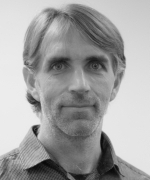About
Tomas Sobotka leads the research group on Fertility and Family and serves as deputy director of the Vienna Institute of Demography (Austrian Academy of Sciences and Wittgenstein Centre). Since 2021 he is Editor-in-Chief of the Vienna Yearbook of Population Research.
His research focuses on global low fertility and family changes, family policies, fertility data and measurement, migration, population and family change in Europe, and assisted reproduction. Tomas has helped launching and expanding several data repositories, including the Human Fertility Database (HFD, www.humanfertility.org), Human Fertility Collection (www.fertilitydata.org) and Cohort Fertility and Education (CFE) database (http://www.cfe-database.org). He is keen on expanding demographic knowledge beyond the boundaries of the discipline. To that aim, he has been collaborating with the United Nations Population Fund (UNFPA) and other organisations, and coordinating the European Demographic Data Sheet (http://www.populationeurope.org) (2018-2022).
In 2017 he was awarded Allianz European Demographer Award and in 2022 the Dirk J. van de Kaa Award for Social Demography awarded by the European Association for Population Studies (EAPS).
Areas of Expertise
- Fertility and Family Change in Low-fertility Settings
- Fertility Measurement
- Fertility Intentions & Ideals
- Education and Fertility, Assisted Reproduction
Curriculum Vitae
Contact
Affiliation: VID/ÖAW E-Mail: tomas.sobotka(at)oeaw.ac.at
Phone: +43 1 51581-7716
Other Resources
Publications
Full publication list (since 2013)
Human Fertility Database:
www.humanfertility.org
Human Fertility Collection:
http://www.fertilitydata.org
CFE (Cohort Fertility and Education) database:
http://videurrep.oeaw.ac.at/database/
European Fertility Data Sheet 2015:
www.fertilitydatasheet.org
European Demographic Data Sheet 2006, 2008, 2010, 2012, 2014, 2016:
www.populationeurope.org*
Birth Barometer / Geburtenbarometer Austria, Geburtenbarometer Vienna:
http://www.oeaw.ac.at/vid/barometer/index.html
The Wittgenstein Centre aspires to be a world leader in the advancement of demographic methods and their application to the analysis of human capital and population dynamics. In assessing the effects of these forces on long-term human well-being, we combine scientific excellence in a multidisciplinary context with relevance to a global audience. It is a collaboration among the Austrian Academy of Sciences (ÖAW), the International Institute for Applied Systems Analysis (IIASA) and the University of Vienna.

